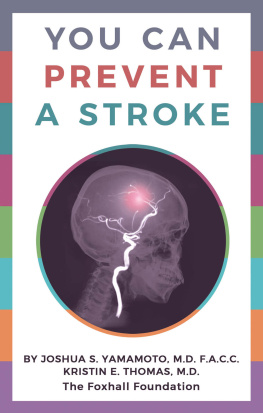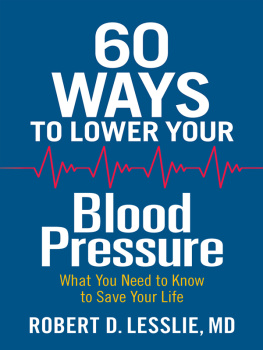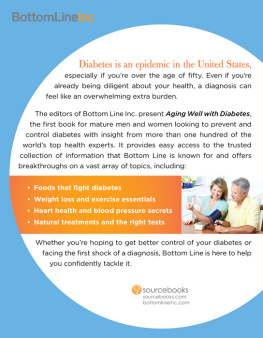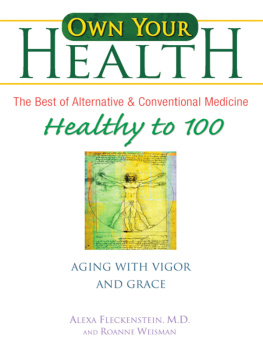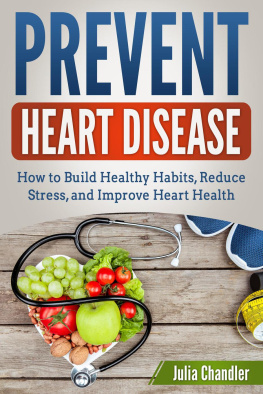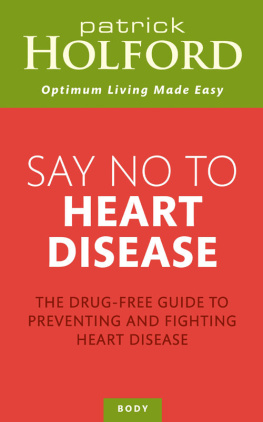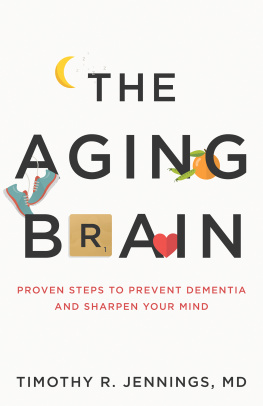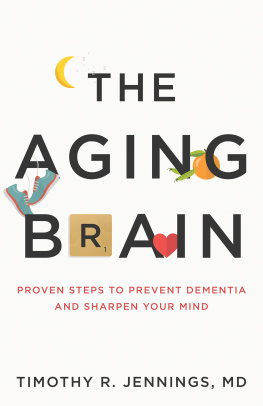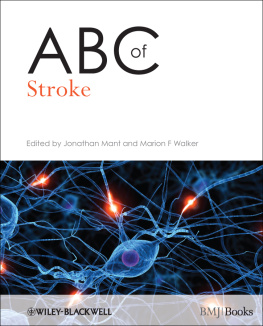Contents
Guide


You Can Prevent a Stroke
Copyright 2019 by Joshua S. Yamamoto and Kristin Thomas
All rights reserved. No part of this book may be used or reproduced in any form or by any electronic or mechanical means, including information storage and retrieval systems, without permission in writing from the publisher. For information, please contact RosettaBooks at , or by mail at 125 Park Ave., 25th Floor, New York, NY 10017
First edition published 2019 by RosettaBooks
All photographs come from the personal archive of the
authors unless credited otherwise.
Cover and interior design by Alexia Garaventa
ISBN-13 (print): 978-1-9481-2240-5
ISBN-13 (ebook): 978-0-7953-5225-6
Library of Congress Cataloging-in-Publication Data
Names: Yamamoto, Joshua S., author. | Thomas, Kristin.
Title: You can prevent a stroke / Joshua S. Yamamoto, M.D. F.A.C.C., Kristin Thomas, M.D.
Description: New York : RosettaBooks, 2019.
Identifiers: LCCN 2019011576 (print) | LCCN 2019012923 (ebook)
ISBN 9780795352256 (ebook) | ISBN 9781948122405 (hardback)
Subjects: LCSH: Cerebrovascular disease--Prevention.
BISAC: MEDICAL / Cardiology. | MEDICAL / Preventive Medicine.
Classification: LCC RC388.5 (ebook) | LCC RC388.5 .Y36 2019 (print)
DDC 616.8/105--dc23
www.RosettaBooks.com

This book is dedicated
to our family and our patients.
You are all invited to our
retirement party, in 20 years
Animus Fortitudo Sapientia
Grant me the Spirit to change
the things that I can,
The Courage to endure
the things that I cannot,
And the Wisdom to know
the difference.
We are all destined to age. The process is no longer as mysterious as it once was. Some things are inevitable and must be endured, but the brain lives and dies by circulation. There is much we can do to keep our circulation healthy. There is much we can do to make sure our brain is not damaged from poor circulation. There is much we can do to prevent brain damage in ourselves and our loved ones. We can prevent strokes. We can prevent vascular dementia.
But only if we choose to.
The Foxhall Foundation
The Foxhall Foundation is a not-for-profit organization dedicated to helping everyone age well. It was started in 2015 to help families take care of patients with dementia in the Washington, DC, area. It became evident that as we age, so much of dementia is a result of the brain damage related to strokes. So much of this damage was readily avoidable, and indeed preventable, but neither the general population nor their physicians had thought of strokes as being something that could, and should, be actively prevented.
After its inception, the Foundation began a program on stroke prevention. Foundation members give dozens of lectures and presentations on stroke prevention throughout the year to physicians and the community. These efforts lead to this book, which represents a summation of conversations we have with patients and colleagues every day.
All proceeds from the sales of this book go to support the Foundation.

For more information, go to:
www.FoxhallFoundation.org
Authors Note
We, Dr. Thomas and Dr. Yamamoto, have been working together on and off since we were interns together at The Johns Hopkins Hospital in 1994. This book is really a compilation of the many discussions we have had with our patients over the years.
Contained within are many vignettes and encounters with patients. Although we may be married, we are not physically joined at the hips. Some encounters may have been with only one of us or the other, but we share a common thought process and routinely collaborate. In other words, throughout our text, we have written in the plural we. Mark Twain may have recommended that We be used only by Kings and people with lice, but perhaps he should have included close partners writing books as well.
That being said, occasionally Dr. Yamamoto will provide individual reflections and use the pronoun, I.
About the Authors

Dr. Thomas is a Michigan native who graduated with a degree in American history from the University of Michigan, and subsequently earned her medical degree there as well. She did her internship and residency on the Osler Medical Service at The Johns Hopkins Hospital. Upon completion of her training, she became the first hospitalist physician of Johns Hopkins before accepting the position of Assistant Chief of Service (Chief Resident). She gave up a promising academic career in the Department of Medicine at Johns Hopkins in order to marry a naval officer stationed at the National Naval Medical Center in Bethesda, Maryland. She then agreed to work with a prominent private medical practice in Washington, DC. Her husband joined her several years later when the two formed their own practice, Foxhall Medicine, PLLC. She has long been dedicated to the care of her patients and has watched them age, some more gracefully than others. In 2015, she started the Foxhall Foundation which initially worked to help provide services for patients with dementia.

Dr. Yamamoto was born in Washington, DC. He graduated with a degree in physics from Princeton University, and subsequently worked as a paramedic for the Alexandria City Fire Department until he was accepted into Dartmouth Medical School. He too trained on the Osler Medical Service at The Johns Hopkins Hospital, and then completed cardiology training at the National Naval Medical Center and Georgetown University. He was the cardiology consultant to the US Congress and Director of Cardiac Imaging, and held a faculty appointment at the Uniformed Services University. In 2005, he was lent to the Army and served in Kuwait as the theater cardiologist for the ongoing wars in Iraq and Afghanistan. Upon his return, he dutifully followed orders and joined his wife in private practice.
Introduction
I have been aggravated by many of my colleagues. The generation of physicians who preceded me were too often trained in the old school. That is, if something isnt broken, dont fix it. A great emphasis was placed on symptoms. What are your complaints? If you dont have a complaint, then all must be well.
These same physicians accept that everything related to aging is inevitable. A famous bioethicist once said that there is no meaningful life after the age of 75, so why should anyone go to the doctor after that point?
In my practice, I can spend an entire day and see no patient younger than 90. And they are active and healthy, and enjoying life. I have 96-year-olds still wearing suits to the office. I have a 106-year-old complaining that no one will dance with her. I have an 89-year-old who wanted a stress test to make sure he could keep up with his new girlfriend (who in fact is older than he). I prescribe plenty of Viagra for a whole lot of people whom others would have written off because they are over 75. In fact, the census data now indicates that if you are 65 years old today, you can expect to live about another 20 years.

